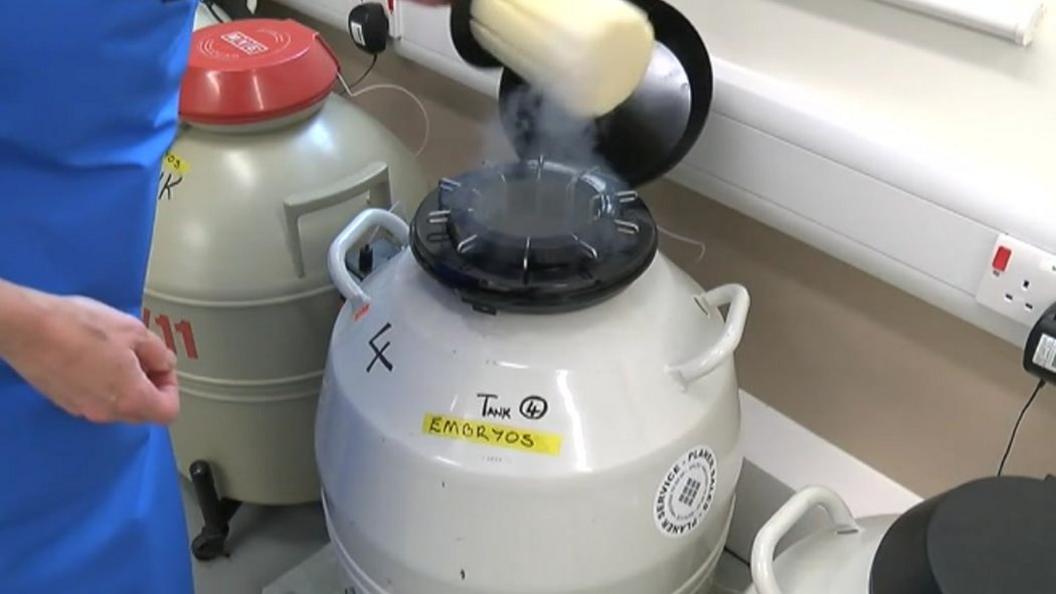Mother in legal battle to have dead daughter's baby
- Published
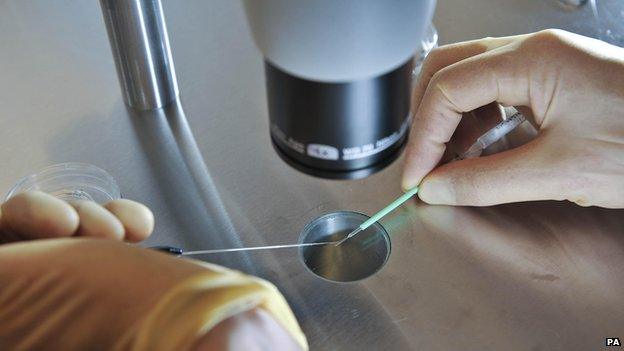
A mother has launched a legal battle to access her dead daughter's frozen eggs, so she can carry her own grandchild.
The unnamed mother and her husband are challenging an independent regulator's refusal to let them export the eggs from London to a US fertility clinic.
The High Court heard the daughter, who died from bowel cancer, wanted her eggs fertilised by donor sperm and implanted in her mother's womb.
The judge has reserved his judgment, which is expected in the near future.
The daughter, who was the couple's only child, decided to freeze her eggs in a clinic at IVF Hammersmith in west London in 2008, following her cancer diagnosis.
The case is believed to be the first of its kind.
New York offer
The daughter hoped she would one day carry her own child, but died in her late 20s in 2011.
A clinic in New York has indicated that it is willing to provide her 59-year-old mother, known as Mrs M, with the fertility treatment she desires, at a cost of up to £60,000 ($92,000).
But the Human Fertilisation and Embryology Authority (HFEA) has refused to issue a "special direction" to allow the eggs to be taken out of storage and sent to the US.
Mrs M is asking Mr Justice Ouseley to rule that this decision was unlawful and interfered with the family's human rights.
HFEA's statutory approvals committee (SAC) made the ruling in 2014, saying there was insufficient evidence to show that the daughter wanted her mother to carry her child.
Although the woman completed a form giving consent for the eggs to be stored after her death, she did not fill out a separate document indicating how she wanted them to be used.
'Entities in limbo'
Minutes from a committee meeting revealed the "strongest and only evidence" of her wishes was a reported conversation with her mother while she was in hospital in 2010.
Mrs M stated her daughter had told her as her health deteriorated: "They are never going to let me leave this hospital mum - the only way I will get out of here will be in a body bag.
"I want you to carry my babies.
"I didn't go through IVF to save my eggs for nothing.
"I want you and Dad to bring them up; they will be safe with you.
"I couldn't have wanted for better parents. I couldn't have done this without you."
Mrs M's statement added: "I have absolutely no doubt in my mind that, as far as A [the daughter] was concerned, her eggs held a life force and were living entities in limbo waiting to be born.
"She was clear that she wanted her genes to be carried forward after her death.
"She had suffered terribly and this was the one constant in her remaining years from which she never wavered."
'World first'
Jenni Richards QC, appearing for the parents, asked the judge to rule the decision unlawful and a "disproportionate interference" with the family's human rights.
She argued the HFEA had taken too rigid an approach and placed "unreasonable" emphasis on the fact that the daughter did not sign the additional form specifying the use of her eggs.
But Catherine Callaghan, appearing for the HFEA, argued its decision was neither irrational nor disproportionate.
Ms Callaghan added: "There may be a natural human temptation to give the claimants what they are seeking, but the court should be very reluctant to assume that, because this is the proposed course the claimants want, it must inherently follow that it was also what the daughter wanted in the absence of clear evidence to that effect."
The court heard the couple want to remain anonymous in order to protect the identity of "an as yet unborn child".
They said their daughter would have been "devastated" if she had known her eggs could not be used.
Fertility expert Dr Mohammed Taranissi, who runs the ARGC clinic in London, said: "I have never heard of a surrogacy case involving a mother and her dead daughter's eggs.
"It's fair to say that this may be a world first."
- Published4 November 2013
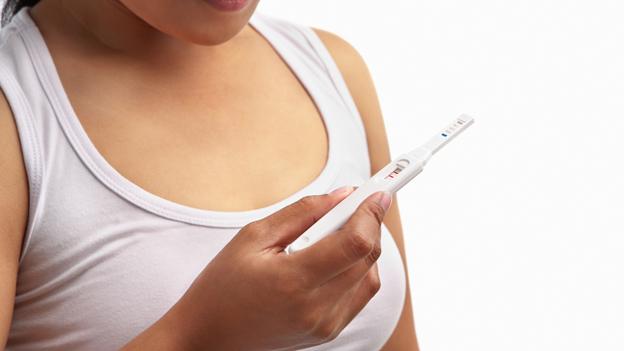
- Published20 February 2013
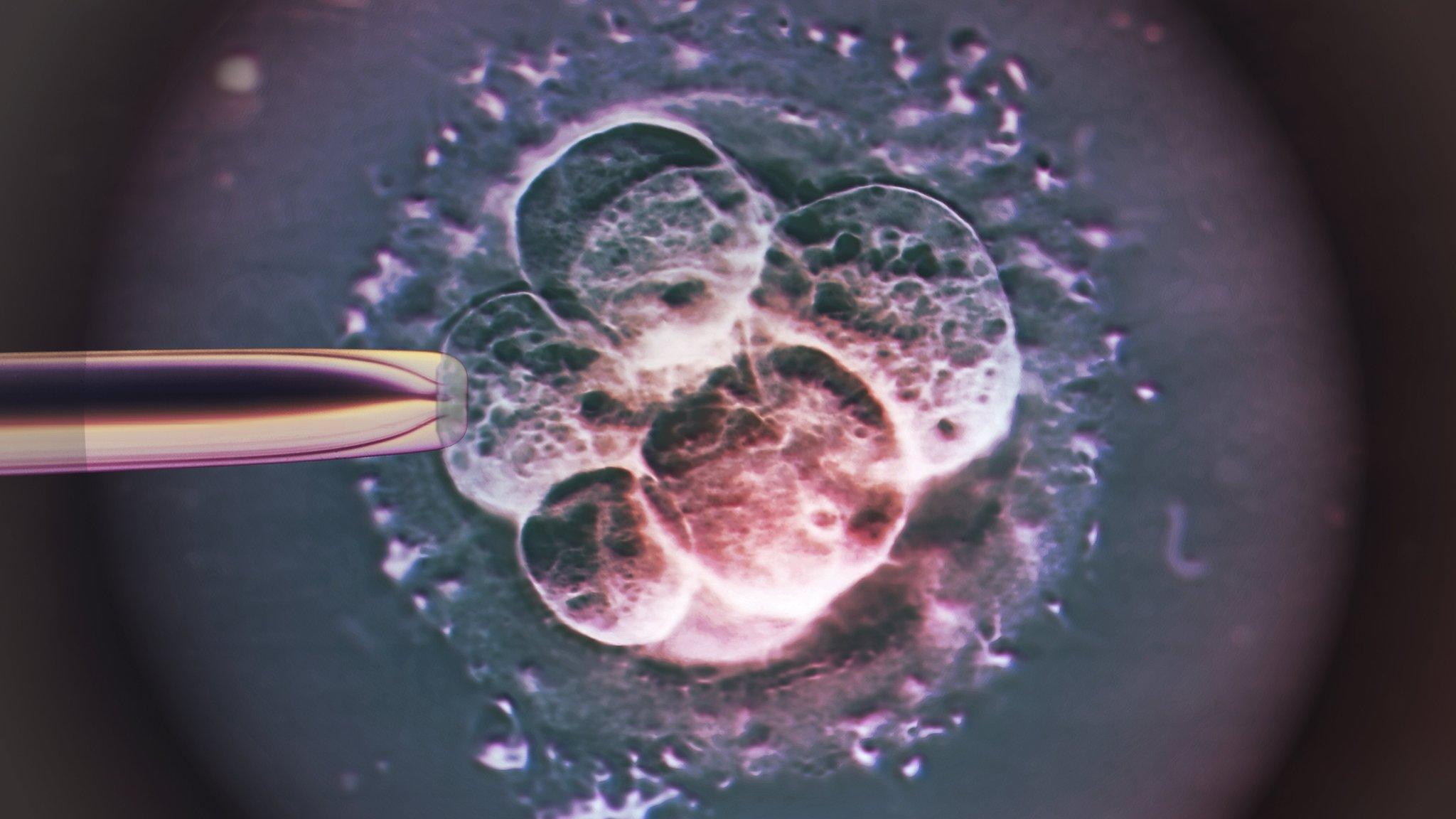
- Published23 May 2011
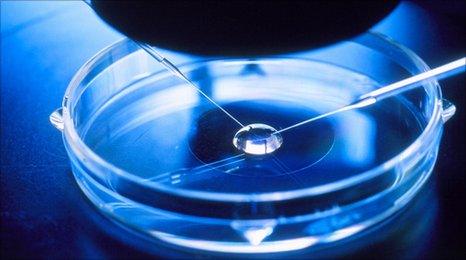
- Published20 February 2013
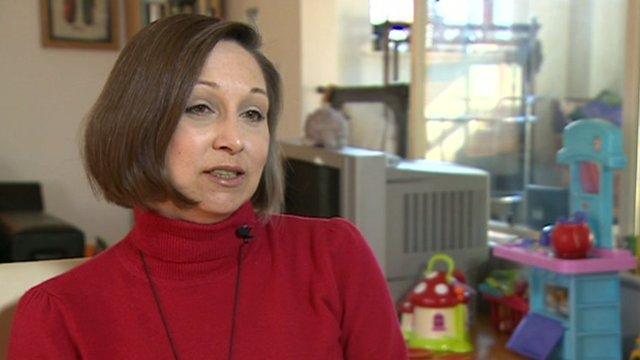
- Published11 March 2015
